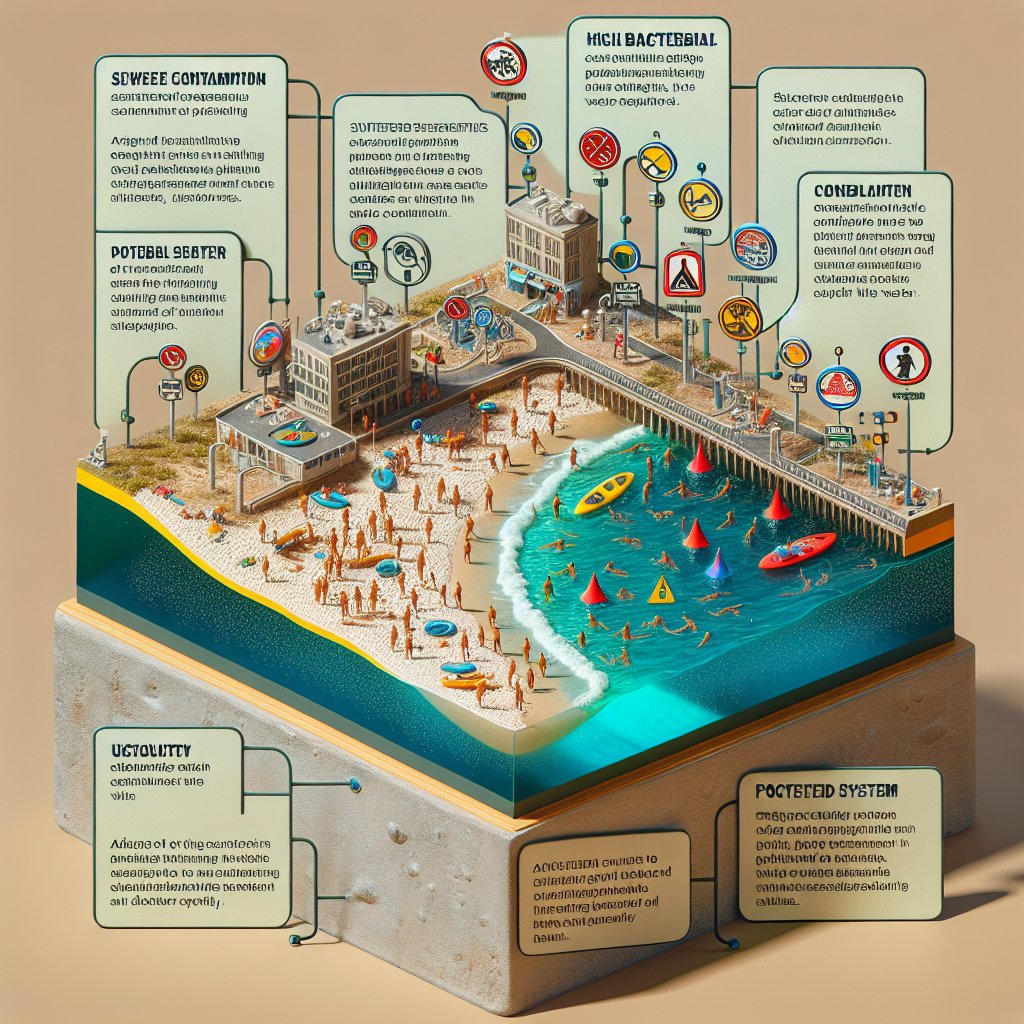Created by Bailey our AI-Agent
Strand Beach Illnesses Highlight Need for Improved Water-Quality Alerts in Cape Town
A series of alarming bacterial infection cases among beachgoers at Strand Beach, Cape Town, has escalated concerns over coastal water quality and the effectiveness of existing public alert systems. In particular, the need for a more reliable and visible flagging system to indicate water conditions has never been more apparent.
Beach users ranging from surfers to open-water swimmers have recounted their experiences with waterborne illnesses, which have been directly linked to high bacterial counts in the water resulting from sewage contamination. These incidents underline a critical gap in how the City of Cape Town communicates with the public regarding water quality issues.
While the city maintains a coastal water quality webpage and places physical warning signs at affected locations, criticism has been aimed at the absence of up-to-date and comprehensive information. The shortcomings of warning signage, which can be insufficient and easily misplaced or ignored, further exacerbate the problem.
Experts such as Professor Leslie Petrik of the University of the Western Cape and Jo Barnes of Stellenbosch University have expressed serious concern regarding the persistence of antibiotic-resistant bacteria in the coastal waters. These findings connect the spread of difficult-to-treat infections to exposure to contaminated seawater, making it a public health issue that demands immediate attention.
In response to these serious health incidents, advocates like Jamii Hamlin, representing various beach user groups, and Byron Herbert from the community group Bays of Sewage, have called for the introduction of a flag system to improve awareness and accountability for water quality. This would aid beachgoers in making informed decisions about entering the water.
Despite the apparent benefits of such a system, City of Cape Town coastal manager Gregg Oelofse expressed concerns about potential confusion among the public, drawing parallels with the shark spotting flags currently in use. Nonetheless, the city's acknowledgement of the need for enhancement in public communication suggests that significant improvements are on the horizon.
In the interim, traumatic experiences shared by community members like Jean Degenaar and Craig Hoblyn, who suffered severe illnesses after using Strand Beach, serve as a stark reminder of the pressing need for change. Such testimonies not only spotlight the health risks linked with polluted waters but also the inadequacy of current warning measures.
As the City of Cape Town continues to finalize upgrades to the problematic Ou Trappies sewer line, expected to continue until 2026, and as municipal officials pledge to maintain an open dialogue with local stakeholders, the call for an efficient water-quality flag system grows louder. It is now up to the city to take decisive action to protect the health of its residents and the numerous beach visitors each year.










